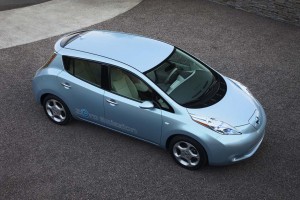Within the next two years, several automakers will introduce new vehicles aimed at helping to solve the problem of reducing, if not eliminating our dependency on fossil fuels — but it seems that every maker is taking a different path to achieve that goal.
Any number of possibilities – from pure battery power to an alternate to the traditional gasoline engine, dubbed OPOC, for opposed-piston/opposed-cylinder – are being proposed as the best solution for tomorrow’s cars and trucks. But there’s truth to the current cliché that suggests there is no single “silver bullet.
“There’s a lot of bets being made out there,” said Micky Bly, director of electric vehicle programs at General Motors, during this week’s Green Car Conference, in Detroit. The future of personal mobility will involve many approaches, agreed most of the experts who joined Bly at the event. And the competition, the GM executive suggested, “is good. It’s healhy.”
GM used the conference to spotlight its own preferred option, the extended-range electric vehicle, which provides just enough battery power to handle the typical American’s daily commute. For longer trips, a small internal combustion engine kicks in, giving products like the upcoming Chevrolet Volt essentially unlimited range as long as there are gas stations handy.
Nissan is another maker catching plenty of attention, right now, and it’s engaged in some friendly, if intense, competition with GM as it prepares to introduce the new Leaf, later this year, about the sae time Volt reaches market.
LEAF is a pure battery-electric vehicle, or BEV, that will be capable of traveling up to 100 miles on a full charge. Nissan will sell it for $32,780, but a $7,500 tax credit will reduce the price to $25,280.
GM has not released pricing for Volt, but has hinted at a number in the range of $40,000 – before the same $7,500 tax credit. Additional local and state tax incentives may further reduce the cost of the vehicles.
Brian Carolin, senior vice president of sales and marketing for Nissan North America, said LEAF’s 100-mile range will be enough for most people to complete their daily driving needs.
Bly took a shot of his own at BEVs like the Leaf, implying that buyers might be reluctant to purchase a vehicle that cannot be used for longer trips. “We really think it’s got to be capable of being your primary vehicle,” Bly said.
Battery car proponents insist that lithium-ion technology is improving rapidly – with better versions of the chemistry expected to both reduce cost and deliver greater power density. That latter is a measure of how much energy can be stored in a given mass of battery. The higher the density, the longer the range.
But asked if battery capacity suddenly doubled, would he rather increase Leaf’s range or reduce battery size and cost, Carolin did not hesitate to say he would opt for the smaller battery. Other EV supporters agreed.
“It’s not the tool for (long-range trips),” said Rich Steinberg, electric vehicle operations and strategies manager for BMW.
Many EV proponents see battery cars as working best as a second vehicle in a typical two-car family. Such a household would have a traditional gasoline-powered vehicle for longer trips.
Bly admitted that the Volt has presented a tremendous challenge for GM. In fact, he said the company didn’t even know how it would all work when the Volt was first announced, several years ago. Now, after years of figuring out how to make it come together, Bly thinks people will line up to buy the Volt.
Maybe they will. But they may also line up to buy the LEAF or any of the other hyper fuel-efficient platforms being championed by experts from around the world.
“This is more than just a vehicle,” Carolin said. “It’s a movement.”


I would like to throw in to the mix of the various BEV and EV strategies the thought of consumers making use of short term rentals such as from Zipcar or Enterprise as a vehicle source for the occasional long trip or specialized hauling need. We don’t need to be driving a full size SUV because we need one for the family vacation once a year.